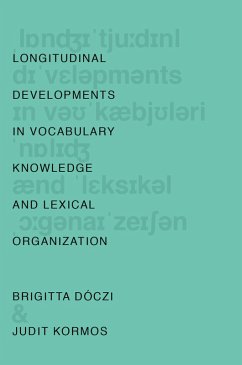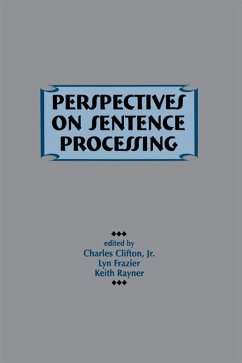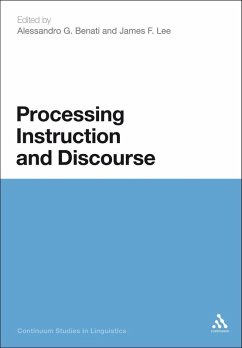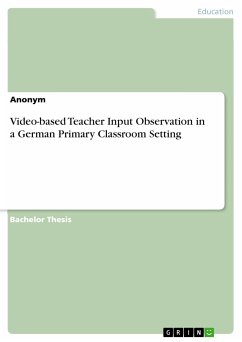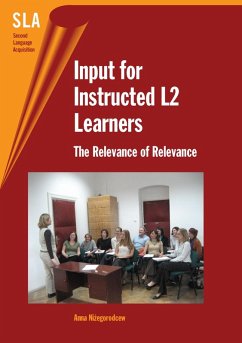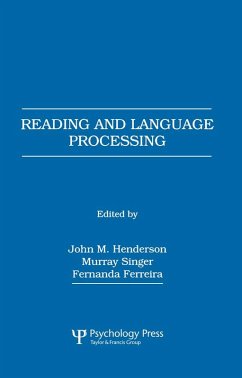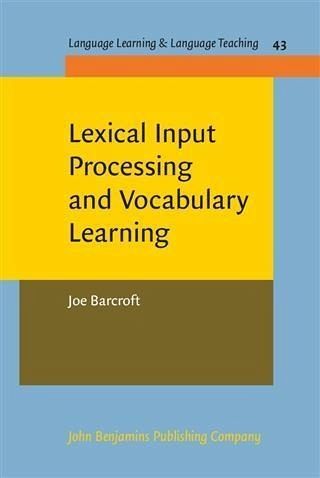
Lexical Input Processing and Vocabulary Learning (eBook, PDF)
Versandkostenfrei!
Sofort per Download lieferbar
102,95 €
inkl. MwSt.

PAYBACK Punkte
51 °P sammeln!
This book focuses on theory, research, and practice related to lexical input processing (lex-IP), an exciting field exploring how learners allocate their limited processing resources when exposed to words and lexical phrases in the input. Unit 1 specifies parameters of lex-IP research among other levels of input processing as well as key components (form, meaning, mapping) and contexts (incidental/intentional) of vocabulary learning. Unit 2 highlights theoretical advances, such as the type of processing - resource allocation (TOPRA) model, consistent with research on tasks (sentence writing, w...
This book focuses on theory, research, and practice related to lexical input processing (lex-IP), an exciting field exploring how learners allocate their limited processing resources when exposed to words and lexical phrases in the input. Unit 1 specifies parameters of lex-IP research among other levels of input processing as well as key components (form, meaning, mapping) and contexts (incidental/intentional) of vocabulary learning. Unit 2 highlights theoretical advances, such as the type of processing - resource allocation (TOPRA) model, consistent with research on tasks (sentence writing, word copying, word retrieval) that learners may perform during vocabulary learning. Unit 3 highlights patterns in partial word form learning and input-based effects, including the value of increased exposure, drawbacks of presenting vocabulary in semantic sets, and advantages of input enhancement, particularly with regard to increasing talker, speaking-style, and speaking-rate variability in spoken input. The book unifies a range of research pertinent to lex-IP, summarizes theoretical and instructional implications, and proposes intriguing new directions for future research.
Dieser Download kann aus rechtlichen Gründen nur mit Rechnungsadresse in A, B, BG, CY, CZ, D, DK, EW, E, FIN, F, GR, HR, H, IRL, I, LT, L, LR, M, NL, PL, P, R, S, SLO, SK ausgeliefert werden.




